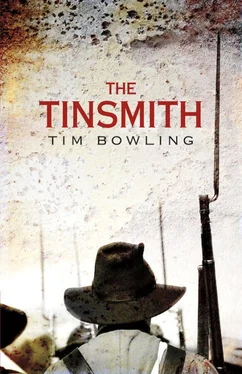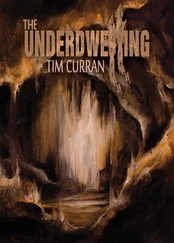“What is there to know?” Dare said evenly, his arms akimbo, resting on the oars.
“Why, who you are. They know who you are.”
“Who I am.” Dare spoke the words with a slight pause between each one. He straightened up, his knuckles tightened on the oars.
This should not have been so awkward. After all, Dare had asked Anson to come, he had summoned him for help. He knew the answer. But it appeared that he wanted to hear it spoken aloud.
“They know you’re black, John.” Suddenly, Anson felt no reason to use the name he had given his friend at Antietam. The artifice seemed pointless now. “Some Southerner saw you in Victoria and—”
“I never knew my parents.”
Dare blinked slowly, as though his eyelids were crusted with salt brine. He seemed to speak to himself.
“The overseer told me they were white. That I was born of white trash and only raised as a nigger.”
He held the oars so tightly that his two fists were against his chest.
Anson swallowed dryly. The glass of the whisky bottle was cold in his palm, but he didn’t raise the bottle to his mouth. White? Both parents? The idea staggered him. He had looked past the colour of Dare’s skin for so long that it simply never occurred to him that there was any question of his mulatto ancestry. Dare was black, an escaped slave who looked white. And Anson had saved him. To doubt these facts was worse than to lose faith in God; it was to abandon everything, to find nothing in life but deceit and shadows. He gave another drink of whisky to the gasping Englishman, who seemed even paler than before. Then Anson forced himself to address Dare’s last statement.
“Did you believe him?”
Now Dare did smile, a slow unwinding of skin that revealed the slightest glimpse of teeth.
“For a time. Then I knew it didn’t matter. Not if I owned myself. That was all I had to do. The owning’s what matters.”
Anson tried to assess the conviction in Dare’s tone. What struggles he must have endured to reach so blunt a philosophy! Yet Anson couldn’t deny the stark truth of it. Was the North’s ambition in the war any different? He decided to address the situation at hand.
“I don’t see that this changes anything, John. Even if you’re white but they believe you’re not, that’s trouble enough. These people want you gone. That’s the point, isn’t it? That’s why I’m here. To help you stop them from getting their way.”
Dare made small circles with one oar by slightly moving one fist. Water dripped off the blade. “Yes. It was why I cabled.”
“Was?”
His nostrils flared. Several mosquitoes settled on his upper lip, but he did not brush them away; they sat there like a crooked stitch. Or another scar. The rough, whitened edges of an earlier one showed just above his beard on the right side; it looked as if Dare had been scratching desperately to get at the old wound but without success.
But his voice contained only a chilling calm.
“There’s no help now. I thought I could fight and stay this time.”
Dare rowed swiftly for a dozen strokes, then let the skiff glide again. Finally he spoke. “I’ll have to get myself away. But you can still do something for me. I need someone to protect my property.”
“Protect? But I can’t—”
“It’s all right. My Chinese knows the business. I’m asking only that you sell what you can. You won’t get much, but it should be enough to give me another start.”
As Anson began to protest, Dare cut him off.
“You’ve put your own money into this. And…” He dropped the blades lightly to the river. “And we’ve known each other a long time.”
Anson bowed his head. All his unshakeable trust in Dare flooded back at the reference to their old bond. Here was a man, likely of mixed blood, once white in the eyes of this place, now black, for whom the past was more than merely inescapable; it was deadly. Yet he would not let the blade be driven into his back. He would pick up his gun and turn and then keep moving.
“Where will you go?” Anson said.
Dare began to stroke rapidly. “South” was the only word that slid between his breaths.
“South?” Anson could not keep the alarm from his voice.
“South of here. I have a piece of land in California.”
Dare bent to the oars again as another moan escaped Thomas Lansdowne’s lips.
“Louisa,” he said, his eyes opening.
“She’s fine.” Anson gave him some more whisky. “You’ll see her soon.”
The eyes flickered shut again.
Dare suddenly stopped mid-stroke and began to cough violently. The muscles in his neck tightened and his eyes seemed to loosen in their sockets. Even the white edge of his scar appeared to expand toward his shaken look. After ten seconds he wiped a forearm over his brow, muttered something to himself, then picked up the stroke rate. He rowed so quickly now that Anson tensed, expecting another harsh fit of coughing to cut off the rhythm. But it remained steady as the Chilukthan wharf came into view and the clattering and hissing of the cannery echoed in the darkness. Anson noted the light blazing in Louisa’s room. Her mother and aunt, no doubt, had been vigilant in their attendance.
As Dare moored the skiff to the wharf, the gravity of the situation settled over Anson’s mood. Someone, perhaps Thomas Lansdowne, had murdered an Indian. And while it was likely the Englishman would never be charged with the crime, it might very well unhinge him; that is, if he didn’t succumb to his own wound or at the very least lose his arm. Meanwhile, his daughter was very ill and might die, and there was no guarantee that her mother, pregnant, grieving, and already on the verge of hysteria, could survive further losses.
Matters were no better for Dare. If Thomas Lansdowne died, Dare, guilty or not, would be a murderer and a fugitive. Even if the Englishman survived, Dare’s fate on the river was sealed. Nor was it likely that any of his competitors would feel the need to pay full value for a nigger’s property, especially not a nigger who’d shot Tom Lansdowne and been forced to flee.
Heavily, Anson positioned himself to lift the wounded man to the wharf.
Dare stopped him. “I’ll carry him to the house. All seems quiet enough.”
It was true. Other than the cannery’s relentless noises, there were no sounds along the riverbank; most of the fleet must not have returned yet. Anson hesitated. He knew so little of Dare’s life, where he’d been, what he’d endured; mostly their correspondence had been of business, and even that had been infrequent. Until this moment, it had always seemed enough, the bond they had forged at Antietam. It had pulsed behind everything, like the sun, even long after it had gone down, pulsed with the promise of more light. And now it seemed that that promise surrounding his friendship with Dare might never be fulfilled. In any case, there was no time to ask everything that might be asked. Wearily, Anson helped position the wounded man in Dare’s arms and struggled not to see the old images but to hold on to the present, for the Englishman’s sake, and even more for the sake of his gifted daughter.
A few moments later the men crossed the wharf, Dare breathing heavily with the effort of bearing Thomas Lansdowne’s bulk, Anson holding the oil lamp just ahead of them. As they came down to the yard, Anson looked up at the bright window of Louisa’s room and saw two shadows cross the pane. For some reason, the sight alarmed him. The women, after all, rarely moved from their chairs. He quickened his pace, knowing that Dare would manage to keep up, despite his burden.
At last they reached the veranda. The first floor of the house was in darkness. With the women upstairs and Henry Lansdowne likely at the cannery, it would be quite safe for Dare to carry the wounded man inside. At Anson’s suggestion, he did so, laying Thomas Lansdowne gently on the ottoman in the parlour. Then he stood and faced Anson in the shimmering oil light.
Читать дальше












